Duke Nukem 3D. Shadow Warrior. Blood. All built on the Build engine, these three games when taken collectively are often referred to as the Big Three, and they are now all available for Linux from GOG. But just how well has GOG done in bringing these classic '90s shooters into the modern era?
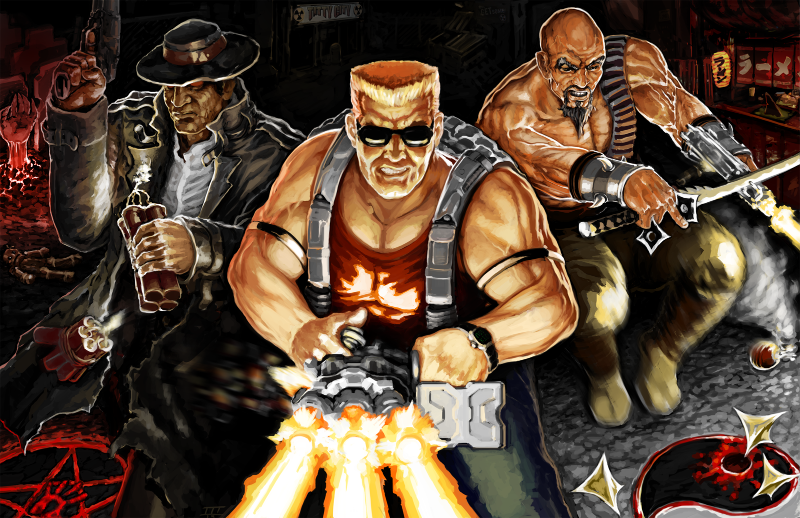
"Build Bros" image used courtesy of Robert Treherne on DeviantArt.
Prerequisites
For this article I am concerning myself only with the single player aspect of the games; I have not tried to use any of their multiplayer components. I am also using the Tarball Archive option offered by GOG for all of the games.
Software Specifications:
Distribution: Arch Linux
Kernel: Linux 4.0.5
Graphics Driver: R600 Gallium3D Driver
Desktop Environment: Xfce 4.12 with compositing
Hardware Specifications:
Motherboard: MSI 760GM-E51(FX)
Processor: AMD Phenom II X4 955 BE 3.2 Ghz
Video Card: SAPPHIRE HD 6870 1GB GDDR5 PCIE
Memory: 4 Gigabytes DDR3 PC10666, 1333 MHz
Boot Drive: 500 GB Western Digital Caviar Black
Headset: Roccat Kulo ROC-14-702

Duke Nukem 3D Atomic Edition
There are very few gamers who have not at least heard of Duke Nukem, something that is made all the more surprising by the fact that his most successful outing came out way back in 1996 and that most of his recent adventures have been met with widespread scorn and derision from the mainstream gaming press. One can accept these missteps though because his 1996 release was and still is such a corker.
Duke Nukem 3D set the mould for the other two big Build engine games to follow, with it featuring a talkative named protagonist, vast and highly interactive levels, and an emphasis on referential humour not often seen in games before its release. The whole experience is basically a gigantic pastiche of the action movie genre, and Jon St. John provides an excellent performance as the eponymous Duke Nukem.
The game takes place in a near future Los Angeles which has been invaded by aliens intent on stealing Earth's women in order to force them to undergo bizarre and terrible experiments. While not winning any awards for its take on gender politics, this backdrop does at the very least allow the player to explore a variety of fully realized urban environments that seem as if they were ripped out of real life.
Duke Nukem 3D does feature some science fiction settings such as a Space Station and Moon Base, but these pale in comparison to the amount of enjoyment that can be had by exploring such places as a strip club or sushi bar. Bringing the game even further to life are the dozens of interactive and often destructible objects scattered throughout the levels, ranging from strippers to toilets to usable video cameras.
The game gives you an almost limitless playground to let yourself loose in, something which is helped by Duke's large and innovative arsenal of weaponry ranging from classic shooter staples to more singular entries such as Pipe Bombs, Shrink Rays, Microwave Expanders, Laser Tripbombs, and the Freezethrower. Add to this the ability to bring forth Duke's mighty boot whenever you wish or fly around in a jet pack anywhere in the level and the sheer visceral joy of Duke Nukem 3D becomes obvious.
Enemies run the gamut from mutant Pig Cops to alien Assault Enforcers that defecate in order to throw their own feces at you. Duke Nukem 3D certainly does not concern itself with being highbrow, but it does at least succeed in pervading a dark dystopian atmosphere filled with pornography and consumerist decadence, something that helps to ground some of the game's more outlandish and obscene moments in context. In a world as perverse as this, someone like Duke becoming its hero seems almost inevitable.
Where the game truly shines though is with the Atomic Edition, where 3D Realms used all of the lessons learned from developing the previous three episodes to create the best Duke Nukem experience possible. Levels span from restaurants to grocery stores to amusement parks to post offices to police stations, and the maximum possible amount of fun is squeezed out of all of them. There is even a secret level set in the infamous Area 51, featuring test spacecraft and alien autopsy rooms.
The GOG version ships with the game already configured in DOSBox and it works flawlessly. It launched for me on the first try without the need for any further troubleshooting, and it managed to carry me through the entire campaign with nary a glitch in sight. This was surely helped by the fact that the game uses MIDI tracks for its music. The GOG release also comes with with a scan of the original manual as well as some other nice but ultimately unnecessary goodies such as custom wallpapers and ringtones.
The GRP file is easily available from the game's "data" directory for those of you who want to run the game through a source port such as Chocolate Duke3D or EDuke32.
Shadow Warrior Classic Complete
3D Realms followed on the success of Duke Nukem 3D by releasing Shadow Warrior in 1997. Shadow Warrior also functions as a massive pastiche, this time focusing on martial arts films and ninja lore. Players take on the role of Lo Wang as he attempts to stop his former master Zilla from taking over the world using creatures summoned from the dark side, as well as avenging the death of his mentor Master Leep along the way.
Shadow Warrior features a few new technical tricks that were not present in Duke Nukem 3D, such as being one of the first games to offer fully operable vehicle and turret sequences. Overall though the gameplay is still much the same as its predecessor, with the player navigating through detailed environments while dealing death unto hoards of enemies. Shadow Warrior features more rustic locations such as temples, forests, rivers, and mountaintops, but there are still plenty of urban and industrial areas thrown in for good measure.
All in all Shadow Warrior is the weakest of the Big Three, with its gunplay being the least balanced and its levels the most likely to descend into tedium or frustration. The retail episode is a full eighteen levels long, and without a mid-chapter break getting through them all can become a bit of a slog. Most of the game's weapons are also tricky to wield with awkward hitscan, and while it does feature some novel new entries such as Katanas, Shurikens, Caltrops, and Sticky Bombs, these are often difficult to utilize effectively.
The toilet humour and misogyny present in Duke Nukem 3D is if anything amplified in Shadow Warrior, with the character of Lo Wang voiced by John William Galt also drawing criticism for being seen as a cultural stereotype. A remake was released in 2013 and ported to Linux last spring which sold itself as having dispensed with the racism, but in truth it was only partially successful. It does amuse me though how the game's stereotyping and voyeurism often gets mentioned by critics while Lo Wang's casual cannibalism tends to slip by unnoticed.
GOG sells Shadow Warrior loaded into DOSBox just like it does with Duke Nukem 3D, and it works well for the most part. On first launch it picked an odd widescreen aspect ratio for my monitor, but this was quickly resolved by pressing the "F5" key and selecting a different display resolution. Shadow Warrior uses CD music, something which necessitated the need for GOG to mount a Cue sheet in order to have the music play properly. It mostly works, but a bug in DOSBox prevents the music volume slider from working in-game.
GOG also ships the game with two expansion packs which never actually made it to market back in the days before digital distribution. Twin Dragon has Lo Wang face off against his evil twin brother Hung Lo, while Wanton Destruction chronicles Zilla's flight to America with Lo Wang in hot pursuit. It is with the integration of these two expansions that the GOG version does start to trip over itself more. Twin Dragon has the music always turned off by default, meaning that one needs to manually toggle it on every time the game is launched.
Wanton Destruction, while arguably the more entertaining of the two expansions, presents a more serious issue in that certain bosses do not spawn on either of the two lower skill levels. This means that some of the actions required to progress through a level cannot occur, forcing the player to cheat through doors or to gain keys in order to continue. A fan made patch exists that fixes these problems, but for whatever reason GOG has failed to include it in the mainline build. Even the confrontation with Zilla is affected, completely nullifying the expansion's final act.
In the end these expansions do manage to add a considerable amount of value to the release even if they are still a little rough around the edges, containing obvious programmer art in places and indestructible objects. The GOG version ships with a text based menu that allows you to select which campaign you want to play which adds a nice degree of polish to the game, although Twin Dragon still insists on storing its settings and saves as separate from the rest. The GOG release also includes a scan of the manual and the full soundtrack in both MP3 and FLAC formats.
The GRP file is easily available from the game's "data" directory for those of you who want to run the game through a source port, although there is currently a lack of good Shadow Warrior source ports on Linux.
Blood: One Unit Whole Blood
Shadow Warrior was not the only big Build engine game to come out in 1997, as in the spring of that year Monolith Productions was also hard at work applying the finishing touches to their title Blood. Set in the year 1928, the game chronicles the struggles of an old-western gunslinger named Caleb as he rises from the grave in order to take revenge on an evil cult called The Cabal, as well as the dark god that he once served. Despite this epic backdrop Blood is still mostly a loving parody of the horror genre, and black humour abounds.
It is no overstatement to say that Blood is easily the best of the Big Three, with it being one of the most underrated shooters of the whole decade. Blood arguably built more on the legacy of Duke Nukem 3D than Shadow Warrior did, taking its gameplay to sophisticated new heights and offering its referential overtones with an even greater degree of refinement. Much of the credit for this has to go to Stephan Weyte, who plays Caleb with a malignant magnificence outclassed by none, laughing like a loon while slaying foes and singing old show tunes to himself when left alone.
Levels are large, detailed, and creative. The first episode alone has you board a moving train before winding up at an open air carnival with playable games and attractions. Certain later levels are even direct send ups to several classic horror films, allowing you to explore icy hedge mazes, haunted hotels, and malls infested with the undead. This same attention to detail is also applied to the game's enemies. Zombies need to be blown up or decapitated in order to be destroyed, while legions of robed Cultists hurl abuse at you in a translatable archaic tongue.
Caleb starts with only a Pitchfork but soon gets his hands on Flare Pistols, Sawed-Off Shotguns, Tommy Guns, Dynamite Bundles, Napalm Launchers, and more esoteric items such as Tesla Cannons, Life Leeches, and Voodo Dolls. These all have primary and secondary firing modes, and can be wielded akimbo when used with the associated power-up. Enemy variety also increases to include Gargoyles, Bloated Butchers, Spiders, Hell Hounds, Gill Beasts, and even disembodied Hell Hands that choke the player while taunting in a tinny little voice.
But perhaps the greatest strength of Blood is simply how smooth it plays in spite of its difficulty. A strong force causes enemies to fly backwards screaming, while Caleb often seems to glide through the air as he leaps from platform to ledge. The game's vast and versatile arsenal allows the player to inflict an almost incalculable amount of damage on the opposition, featuring one of the nicest fire systems and array of practical explosive devices of any shooter to date. Caleb will not be the only one cackling with sadistic glee as you play through the game.
The GOG version comes with two expansions packs, one created by Monolith Productions and one released by Sunstorm Interactive, who were also behind Wanton Destruction. The Plasma Pak is much like the Atomic Edition in that it is built into the main game itself, but Cryptic Passage is a standalone executable which is actually rather poorly exposed. The GOG version does not ship with a nice menu like Shadow Warrior does, something which forced me to create my own custom launchers for the game. Cryptic Passage also includes objects that are not destructible.
Blood like Shadow Warrior primarily uses CD music for its background tracks, something which once again necessitated the need to mount a Cue sheet into DOSBox, bringing with it much of the same bugs such as an inoperable music volume slider. A more serious problem is that in Blood the CD music does not repeat as it should, another known bug in DOSBox. Patches exist upstream that fix both of these issues, so it is baffling that GOG has yet to include them with their own bundled DOSBox executable.
Unlike Shadow Warrior though Blood also features a full selection of properly looping MIDI music that can be activated by moving all of the Ogg Vorbis files out of the Blood "data" directory. These are actually quite good and hold some advantages over the CD music, but you will miss out on the ambient sound effects of the "Dark Carnival" CD track or the eerie choir chanting on "Pestis Cruento". The full soundtrack in MP3 format is included with the GOG version alongside a music video for the song "Love You To Death" by Type O Negative and a scan of the manuals.
The source code to Blood was never released by Monolith Productions, so there are no viable source ports.
Conclusion
In the end I must admit to being somewhat disappointed by the quality of these releases. While all of the Big Three are definitely still worth playing and the GOG versions do give you an easy way of accessing them already setup for modern hardware, the amount of niggling problems present in the wrappers are enough to give GOG a bad name simply because a lot of them would be so easy to fix. All of these issues have known workarounds or patches upstream that could easily be applied to the games, and yet GOG has failed to put in the required effort.
I would not mind, but GOG is a company that prides itself on the level of support that it offers, even going so far as to use it as an excuse not to support Linux back in day until popular demand forced them to do otherwise. So when I am faced with problems that affect gamers on all platforms I am far less inclined to be charitable in comparison to the efforts of a small Indie developer or someone just getting their start on Linux. In fact, in terms of platform support the fact that I was running the games on Linux proved to come nowhere close to being an issue.
Devolver Digital sells enhanced native versions of Duke Nukem 3D and Shadow Warrior on Steam that do not have these issues and offer a raft of new features to boot, and while there will always be purists who want to play the games in their original unadulterated forms or people such as myself that shun Steam out of concerns about DRM and Steamworks integration, the fact that GOG can not even be bothered to make their own versions of the games as competitive as they can possibly be does not speak highly of them.
But I should not be too dour. Duke Nukem 3D ran perfectly out of the box, and I really do appreciate the fact that I can now buy these old gems and have them count as a Linux sale. Most of the problems are minor, and the fact that I can now download them as digital copies is a significant blessing. Playing any of the Big Three will take you back to a time when levels were large and detailed, enemies were numerous and creative, and you were actually expected to play the game seriously even when the games were not being taken seriously themselves.
These are all lessons that could be learned by the shooter developers of today, especially now that the Indie game revolution has given us conditions very similar to the Shareware era that produced these early titles. We could once again have sprawling locales filled with interactive and destructible objects, inventive weaponry that still manages to balance out, and game worlds and characters that provide context to the violence through unreality and parody rather than seemingly condoning war crimes.
But I should really pull myself off my soap box here. The games are good. Buy them.
Quoting: CybaCowboyI don't get it - at least two of these games (Duke Nukem 3D and Shadow Warrior) and possibly the third (Blood - but I'm unfamiliar with the title) have been available on GOG.com (and via other stores) for ages... Am I missing something?Shadow Warrior and Blood only received their Linux releases on GOG over the past few months, but even if they had been around forever, I fail to see why that would preclude me from reviewing them. :huh:
I'm having a problem with GOG Duke Nukem 3D.
The game starts correctly , the initialize screen is ok. From the initial splash screen the display is cropped showing only the top left 2/3 of the screen.
[img=138x104]http://i59.tinypic.com/2pyuaup.jpg[/img]
Other GOG dosbox games work correctly eg Duke Nukem 1+ 2 and Blood.
The Steam version of Duke Nukem 3D classic also shows the same 2/3 for a second and them corrects to full screen..
I did a screenshot using gnome-screenshot and after taking the shot the display corrected it self. So this is one workaround. The issue returns the next time is start the game.
Tried F5 but did not help me.
I opened a GOG support ticket for this on the 7th June but have not had a reply back yet.
Any advice is welcome , is it something I should tweak in dosbox?
Thanks
[Ubuntu 15.04 nvidia 346.59 gtx770 The display is an old LG Flatron L1750SQ 1280x1024 ]
You could also try changing the Duke Nukem 3D screen settings, although that would probably just replicate the same behaviour as pressing "F5". Regardless, you can access these settings by providing the following parameter to the GOG start script:
./start.sh -sset
Alt-Enter works for me.
Hail to the king.
Quoting: crt0megaYou should take a look at [M210 Projects](http://m210.duke4.net/), his "BloodCM" works fine with eDuke32. Unfortunately his work has yet to be finished, Episode 3 is at 66% :/I am actually the co-founder/head moderator of the Blood Wiki so of course I have heard of BloodCM and what they have been able to accomplish is indeed incredible, although as long as the project continues to freely distribute copyrighted assets there will always be a question of legality surrounding it.
The other big hope for getting around the lack of source code access is the XL Engine which is hoping to add Blood support once the guy behind it is done reverse engineering the Jedi Engine behind Dark Forces and Outlaws. I have no idea how much progress he is making at the moment though.
Quoting: HamishShadow Warrior and Blood only received their Linux releases on GOG over the past few months, but even if they had been around forever, I fail to see why that would preclude me from reviewing them. :huh:Ah okay, I have Shadow Warrior, but the Steam version I bought last year... Besides, I wasn't suggesting you don't review them - it's never too late for a review - just failing to understand the significance of the post.
But the way, it's interesting to note that GOG.com have two versions of Shadow Warrior - the "classic" (original) version and a seemingly graphically polished "2013" version (the "classic" version is not available for Linux-based operating systems in Steam - not too sure how this differs from the "redux" version I have in Steam)!
Quoting: CybaCowboyBut the way, it's interesting to note that GOG.com have two versions of Shadow Warrior - the "classic" (original) version and a seemingly graphically polished "2013" version (the "classic" version is not available for Linux-based operating systems in Steam - not too sure how this differs from the "redux" version I have in Steam)!The 2013 remake isn't really the same game as the original. There's been so much talk of the remake (and it's upcoming sequel) on GOL that you should already know this. :)
In his review Hamish already mentions the Steam-exclusive Redux, which indeed seems to be a polished native version of the original.
Quoting: CybaCowboyAh okay, I have Shadow Warrior, but the Steam version I bought last year... Besides, I wasn't suggesting you don't review them - it's never too late for a review - just failing to understand the significance of the post.Fair enough.
Quoting: CybaCowboyBut the way, it's interesting to note that GOG.com have two versions of Shadow Warrior - the "classic" (original) version and a seemingly graphically polished "2013" version (the "classic" version is not available for Linux-based operating systems in Steam - not too sure how this differs from the "redux" version I have in Steam)!As I understand it the "Classic" version of Shadow Warrior on Steam is basically just a free giveaway from Devolver Digital to promote the Classic Redux version.
Incidentally, this is guy probably summed up the game better than I did:
Quoting: LaikaI'm offensive and I find this game Asian.http://steamcommunity.com/profiles/76561198053671250/recommended/225160/
For performance and compatibility reasons, our version of Duke Nukem 3D has been set to run in screen mode 1 (Vesa 2.0), but this seems to cause issues with some display settings.
To change this, please go to the game's install path, and edit the file data/DUKE3D.CFG , and change this line :
ScreenMode = 1
into
ScreenMode = 0
Alternatively, you could define the actual resolution of your screen using these two parameters :
ScreenWidth = 800
ScreenHeight = 600















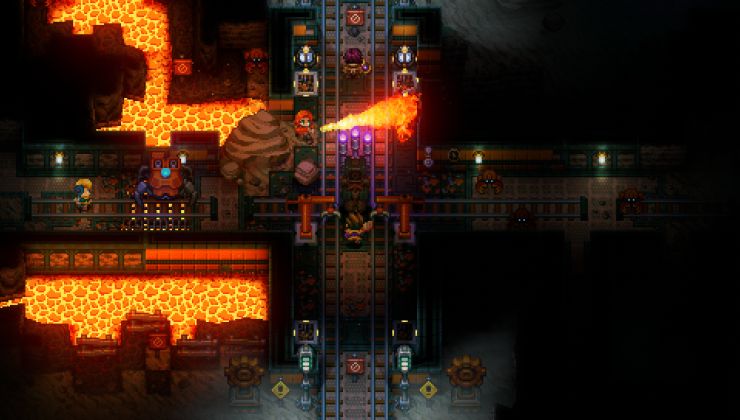
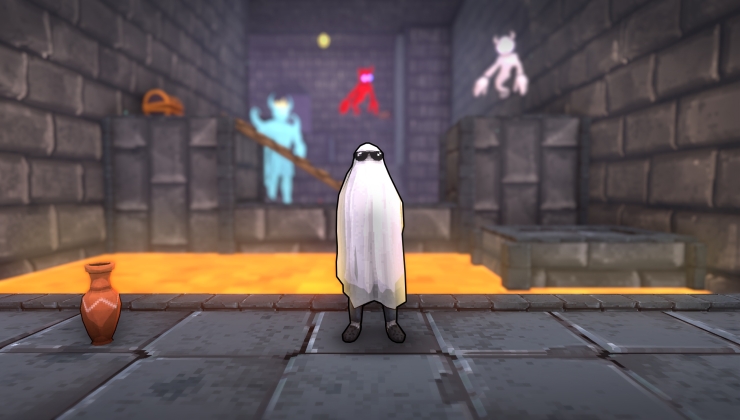
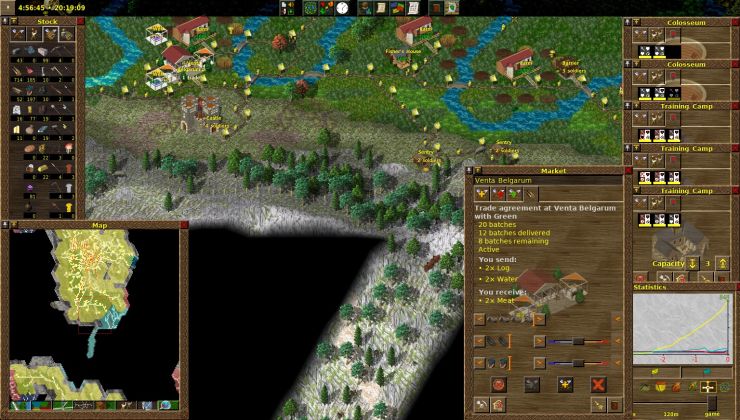
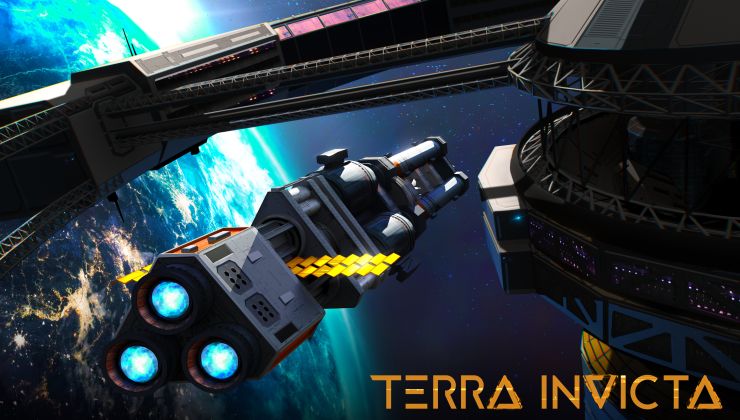





 How to setup OpenMW for modern Morrowind on Linux / SteamOS and Steam Deck
How to setup OpenMW for modern Morrowind on Linux / SteamOS and Steam Deck How to install Hollow Knight: Silksong mods on Linux, SteamOS and Steam Deck
How to install Hollow Knight: Silksong mods on Linux, SteamOS and Steam Deck